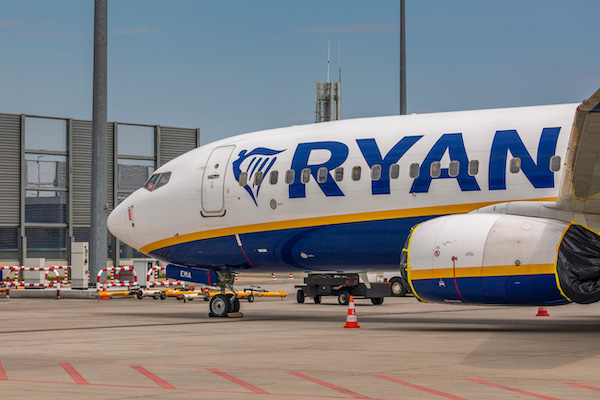Ryanair has once again suspended its flight operations to Tel Aviv, only a month after resuming services. The decision comes amidst a disagreement over airport operational costs at Ben Gurion International Airport, particularly affecting the low-cost carrier’s financial strategy.
The resumption of services to Israel was short-lived as Ryanair cites unresolved issues with terminal utilisation fees. The budget airline is demanding the reopening of a dedicated low-cost terminal, arguing against the increased costs imposed by using a more expensive terminal.
Ryanair, known for its affordable fares across Europe, temporarily halted its Tel Aviv operations due to a dispute concerning terminal costs at Ben Gurion International Airport. After a hiatus caused by regional instability, Ryanair resumed flights on February 1, only to suspend them once more in early March. The disagreement centres around the use of Terminal 1, a facility typically reserved for low-cost carriers.
Ryanair’s persistence in seeking cost-effective operations highlights a broader industry challenge where low-cost carriers face increasing pressures to maintain competitive pricing amidst rising airport fees. The airline has officially requested that Ben Gurion Airport confirm the reopening date for Terminal 1, essential for the resumption of its cost-efficient flights.
The disagreement raises important questions about airport management and airline relations. Effective communication and negotiation between aviation stakeholders are crucial to balancing cost with service delivery. Such resolutions are vital for fostering sustainable travel and tourism growth in key markets, including Israel.
Experts predict potential short-term setbacks in the tourism industry due to reduced flight availability, as airlines like Ryanair play a crucial role in attracting budget-conscious tourists. Airlines and airports must collaboratively find solutions to mitigate such disruptions and support the revival of tourism after significant global setbacks.
Ryanair’s situation serves as a cautionary example for other low-cost carriers, emphasizing the necessity of having flexible airport arrangements. The predicament highlights Ryanair’s commitment to fostering low-cost travel, pivotal in democratising air travel regionally and globally.
Ryanair’s return to Tel Aviv is contingent on the successful reopening of Terminal 1 or an equivalent cost agreement for Terminal 3. Effective collaborations are essential for resolving current challenges and ensuring long-term operational stability. The situation also calls for a deeper assessment of airport infrastructure investments to accommodate low-cost carrier needs.
The suspension of Ryanair flights to Tel Aviv emphasises the significant impact of airport cost disputes on airline operations. The ongoing negotiation between Ryanair and Ben Gurion International highlights the complex dynamics involved in balancing operational expenses with service affordability.
In conclusion, Ryanair’s decision underscores the critical challenges budget airlines face in maintaining competitive pricing amidst rising airport fees. The ongoing discussions with Ben Gurion Airport will be pivotal in shaping the future of Ryanair’s operations in Tel Aviv, affecting not only the airline but also broader travel and tourism dynamics.

